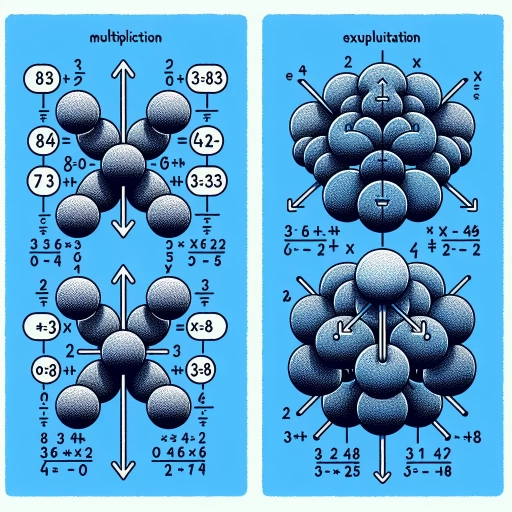How To Multiply Exponents

Understanding Exponents and Their Properties
Introduction to Exponents
Exponents, also referred to as powers, are mathematical operations that involve two numbers - the base and the exponent (or power). Essentially, an exponent represents the number of times a base number is multiplied by itself. For instance, when we write 3^4, it implies that the number 3 is multiplied by itself four times, which equals to 81. Understanding the fundamentals of exponents is crucial for comprehending more complex mathematical concepts or performing simple calculations much faster and easier.
Properties of Exponents
Exponents have several unique properties that simplify their handling in mathematical equations. This includes the Product of Powers rule where when multiplying like bases, you add the exponents(a^n * a^m = a^n+m). Another is the Power of a Power rule which states that to find a power of a power, you multiply the exponents ( (a^n)^m = a^n*m). There's also the Zero Exponent rule, which holds that any non-zero number to the power of zero is always 1(a^0 = 1). Knowing these properties can enable us to perform much complex calculations with ease and certainty.
Common Mistakes in Using Exponents
While exponents are relatively fundamental elements in math, if misunderstood or misapplied, they can lead to significant errors. One common mistake is to treat the multiplication of exponents like simple multiplication. For example, seeing 2^3 * 2^4 and calculating it as 2^12 rather than the correct answer, 2^7, according to the product of powers rule. Another frequent error occurs in handling negative exponents, where some people forget that a^(-n) equals 1/a^n. A proper understanding of the properties of exponents is vital in avoiding such errors, thus yielding correct answers.
How to Multiply Exponents: A Step-by-Step Guide
Multiplying Exponents with the Same Base
The process of multiplying exponents is straightforward, particularly if they share the same base. According to the product of power rule mentioned earlier, you add the exponents and keep the base constant. For instance, if given 2^3 * 2^4, you add the powers 3 and 4 to get 7, keeping the base as 2. This means 2^3 * 2^4 equals 2^7, not 2^12 as that violates the rules of exponents.
Handling Exponents with Different Bases
When it comes to multiplying exponents with different bases, the task becomes slightly more complex. However, it is not impossible if we break down the numbers into their prime factors. Let's take an example of multiplying 3^2 * 5^2. In this case, you cannot add the exponents directly as you would with similar bases. Instead, you calculate independently as (3^2 = 9) and (5^2 = 25), then multiply the results together, i.e., 9*25 = 225. Therefore, understanding prime factorization is a key concept in handling such situations.
A Guide to Using Exponential Rules with Parentheses
sometimes, exponent calculations appear within parentheses. This is where the power of a power rule applies. For instance, in ((3^2)^3), you would multiply the powers (2*3) to get 6, keeping the base constant, i.e., 3^6. However, if there are different numbers in the parentheses, such as (3 * 2)^3, you first perform the operation inside the parentheses to get 6 and then cube the result to achieve 216.
Practical Applications of Exponent Multiplication
Exponents in Real-Life Situations
Exponents are more than mere numbers on a paper; they bear practical implications in daily life. For instance, in computing world, they are used for binary computations and in the expression of large and small numbers. They are also applied in calculating compound interests in finance, estimating populations in biology, or determining the intensity of earthquakes in geology. This shows that once you understand exponents, you can solve real-world problems more effectively.
Exponents in Advanced Mathematics
In higher levels of math like algebra and calculus, exponents play an essential role. They are integral in solving equations, manipulating logarithms, and determining limits. For instance, without properly understanding the concept of squaring or cubing a number, grasping quadratic or cubic equations would be challenging. Therefore, mastering exponent rules can create a foundation for understanding more advanced mathematical concepts.
Exponents in Scientific Computing and Coding
The application of exponents is evident in various scientific computing activities and coding. They are used in calculating exponential growth or decay, expressing enormous distances in astronomy, or slowing down functions in computer code. For example, developers often utilize exponential backoff algorithms to retry operations. This influences the efficiency and reliability of software applications. Hence, exponents are not only beneficial in mathematical subjects but also in technology and science-related fields.